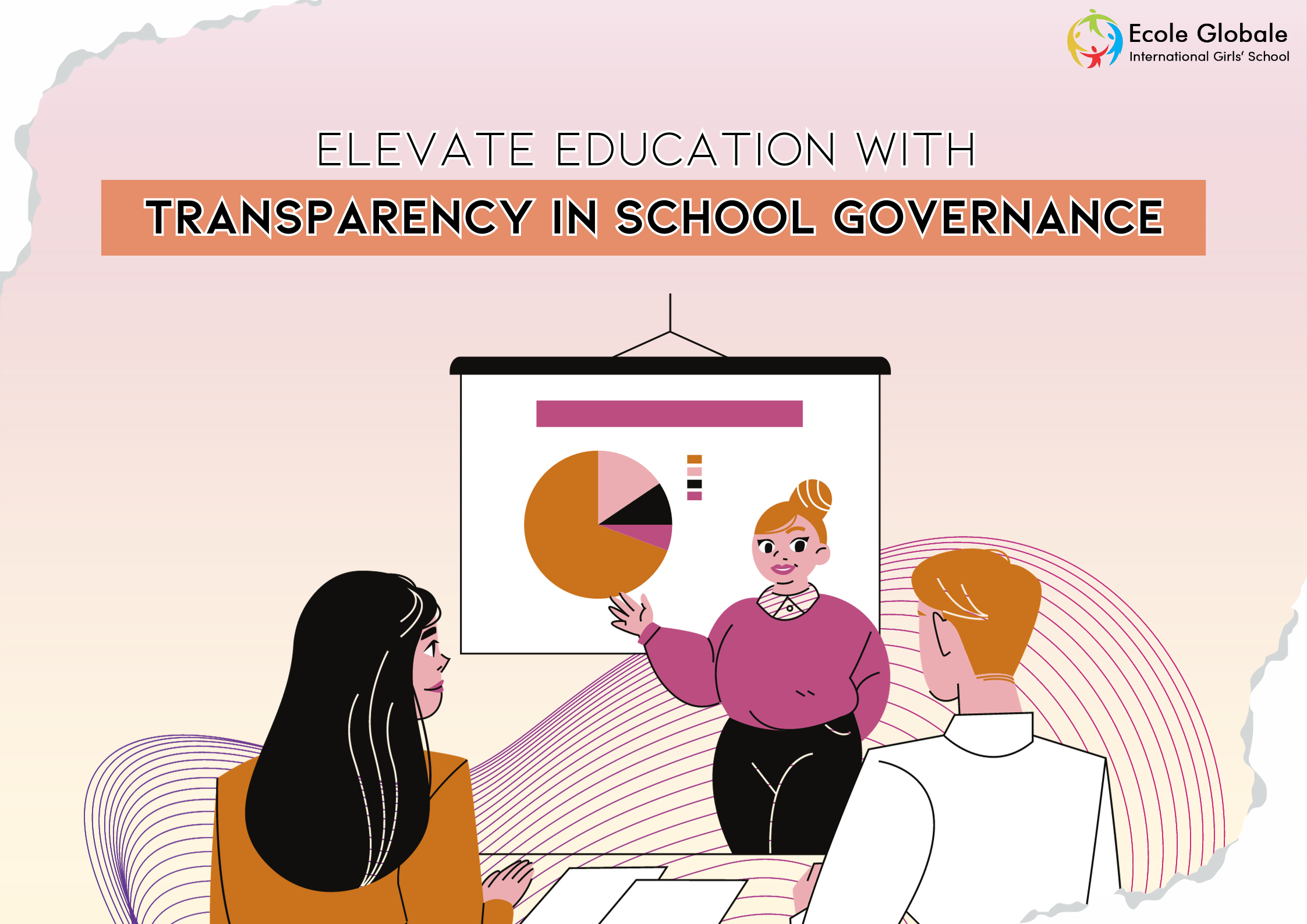At the helm of boarding school governance is the board of trustees or directors. The composition of this board is critical, bringing together individuals with diverse skills, experiences, and a shared commitment to the school’s mission. Effective leadership within the board is essential for strategic decision-making and long-term planning.
A boarding school’s mission and vision serve as its guiding stars. Transparency in School Governance elements should ensure that every decision aligns with these fundamental principles. Regular reviews and updates to the mission and vision statements help keep the institution responsive to changing educational landscapes.
Role of Transparency in School Governance Elements

Boarding schools, often regarded as crucibles of academic excellence and character development, rely on effective governance to steer their course. The elements of transparency in school governance are crucial in shaping the institution’s policies, fostering a conducive learning environment, and ensuring the holistic development of students.
Financial stability is the bedrock of a thriving boarding school. Governance elements must include robust financial oversight, budgeting processes, and fundraising strategies. Sustainability planning ensures that the school can weather economic uncertainties and continue to provide quality education.
Transparency in School Governance plays a pivotal role in shaping educational policies and programs. This includes curriculum development, faculty recruitment, and the implementation of innovative teaching methods. The board must be attuned to educational trends and advancements to maintain academic excellence.
Boarding schools are not just centres of learning but also home to students. Governance elements must prioritize student well-being, safety, and a supportive residential environment. Policies related to health services, counselling, and extracurricular activities contribute to the overall development of students.
Effective governance fosters strong ties between the school and its community. Regular communication channels, involvement in community events, and transparent decision-making build trust and support. Engaged stakeholders contribute to the overall success of the boarding school.
Boarding schools operate within a complex legal framework. Governance elements include ensuring compliance with education laws, employment regulations, and safety standards. A comprehensive risk management strategy prepares the institution for potential challenges and crises.
Governance is not static; it requires continuous evaluation and adaptation. Strategic planning processes, periodic assessments, and feedback mechanisms help the board stay responsive to changing educational needs and societal trends.
Effective boarding school governance is a multifaceted endeavour that requires a delicate balance between tradition and innovation. By nurturing a culture of collaboration, transparency, and forward-thinking, boarding schools can ensure they remain steadfast in their commitment to shaping the future leaders of tomorrow.
The Crucial Role of Transparency in School Governance

In the realm of education, the concept of transparency in school governance plays a pivotal role in fostering a healthy and thriving learning environment. Transparency is not merely a buzzword; it is a cornerstone that upholds the pillars of accountability, trust, and effective communication within educational institutions.
Building Trust and Confidence

One of the primary reasons why transparency in school governance is indispensable that builds trust and confidence among stakeholders. When parents and community members are well-informed about the decisions and policies that impact the education system, they are more likely to trust the school administration. Trust forms the foundation of a positive relationship between schools and their communities, creating an atmosphere conducive to collaboration and support.
Accountability in Action

Transparency in school governance acts as a powerful tool for holding educational institutions accountable for their actions. When the decision-making processes are open and accessible, school administrators are more likely to make informed and responsible choices. This accountability extends to financial matters, resource allocation, and the overall performance of the school. In turn, this ensures that the school is effectively meeting its objectives and serving the best interests of its students.
Informed Stakeholders

Transparency in school governance empowers stakeholders, including parents and teachers, with the information they need to actively participate in the educational process. An informed community is better equipped to contribute meaningfully to discussions, provide constructive feedback, and engage in decision-making processes. This level of involvement enhances the overall quality of education as it reflects a collaborative effort between educators, parents, and the community.
Effective Communication

Transparency is synonymous with effective communication in school governance. When information flows freely between the school administration and stakeholders, misunderstandings are minimized, and a culture of open dialogue is cultivated. This not only strengthens relationships but also ensures that everyone involved in the educational process is on the same page, working towards common goals.
Promoting a Culture of Continuous Improvement

A transparency in school governance structure promotes a culture of continuous improvement. When data, performance metrics, and decision-making processes are openly shared, it becomes easier to identify areas that require attention and enhancement. This commitment to continuous improvement benefits not only the students but also the entire educational ecosystem, fostering an environment that adapts and evolves to meet the changing needs of learners.
Ecole Globale School takes pride in fostering clear and transparent communication channels between its governance bodies and stakeholders. Regular updates, newsletters, and town hall meetings ensure that parents, students, and staff are well-informed about the school’s policies, initiatives, and future plans.
Ecole Globale’s governance model revolves around aligning every decision with its mission and values. This mission-driven approach ensures that the leadership remains committed to providing a holistic education that nurtures both academic excellence and character development. Ecole Globale School places a strong emphasis on financial transparency in school governance. Detailed financial reports are made accessible to stakeholders, outlining budget allocations, expenditure, and fundraising efforts. This level of openness instills trust and confidence in the school’s financial management.
Transparent governance at Ecole Globale is not just about sharing information but actively involving stakeholders in decision-making processes. Parents, teachers, and students have avenues to provide input on important matters, creating a sense of inclusivity and shared responsibility. The school places a high premium on legal compliance and accountability. Regular audits, compliance checks, and adherence to educational regulations are integral parts of Ecole Globale’s governance framework. This ensures that the school operates ethically and within the bounds of the law.
Ecole Globale’s leadership is forward-thinking, constantly adapting to the evolving educational landscape. The school’s strategic plans are communicated clearly, providing a roadmap for the future. A hallmark of transparent governance is the willingness to receive feedback. Ecole Globale actively seeks feedback from all stakeholders through surveys, forums, and suggestion boxes. This feedback loop allows the school to continuously improve and respond to the needs of its community.
Ecole Globale School in Dehradun stands tall not only for its academic achievements but also for its commitment to transparency in school governance. By upholding principles of openness, communication, and accountability, the school sets a commendable example for educational institutions aiming to build trust and create a nurturing environment for students to thrive.









